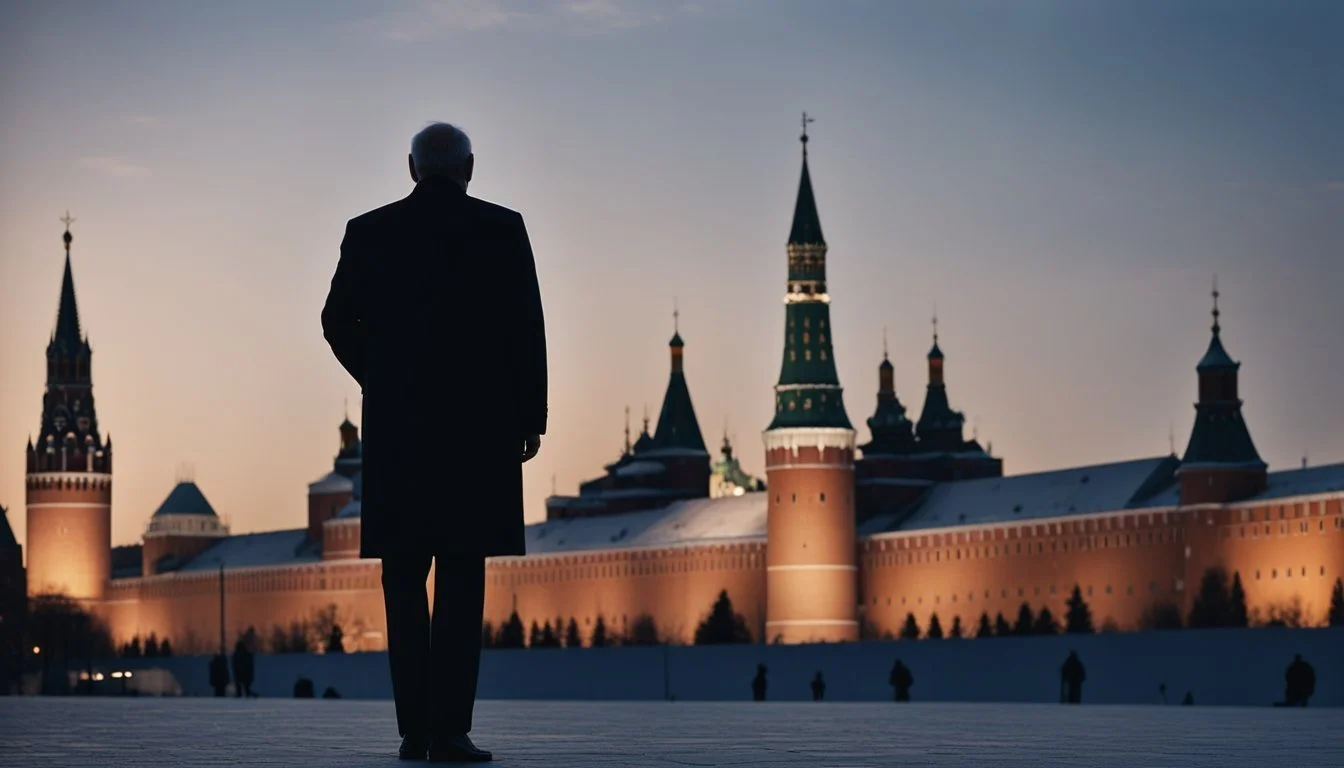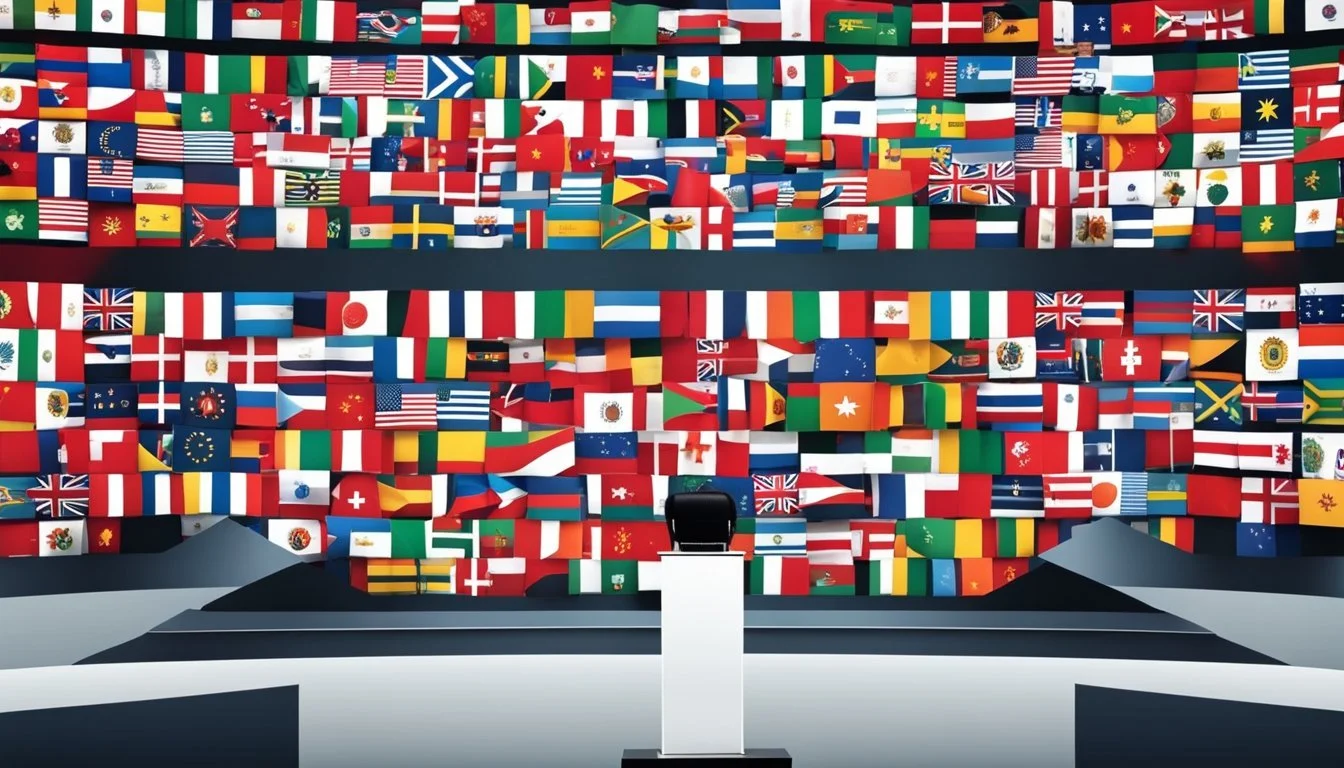8 Films Exploring the Leadership of Mikhail Gorbachev
A Cinematic Insight
Mikhail Gorbachev, the final leader of the Soviet Union, left an indelible mark on 20th-century geopolitics through his policies of glasnost (openness) and perestroika (restructuring). His efforts to reform the Soviet Union and ease Cold War tensions remain subjects of significant historical inquiry and cinematic exploration.
Films that explore Gorbachev's leadership open windows into his complex role in reshaping global politics. Through documentaries and biographical portrayals, these films offer diverse perspectives on his impact and legacy, shedding light on the nuanced cultural and political underpinnings of his era.
1) The Inner Circle
"The Inner Circle" (1991) is a film directed by Andrei Konchalovsky. The movie delves into the complexities of life inside the Soviet Union under Stalin's rule.
It provides a gripping portrayal of the intense atmosphere within the Soviet leadership.
Major characters include Stalin's personal projectionist, who gains an insider's view of the absolute power and control wielded by the Soviet leader.
The film offers a nuanced perspective on the personal sacrifices and ethical dilemmas faced by those close to power. It reflects on how absolute authority can influence personal relationships and individual morality.
Through its narrative, viewers gain a deeper understanding of the atmosphere Gorbachev would later inherit and seek to transform.
For more information, visit The Inner Circle on IMDb.
2) My Perestroika (2010)
"My Perestroika" is a documentary that delves into the personal narratives of five individuals who grew up during the Brezhnev era, often referred to as the "Period of Stagnation."
These individuals, now in their early forties, share their experiences of living through the dramatic changes brought about by Mikhail Gorbachev's policies of perestroika and glasnost.
The film captures the profound impact of these reforms on everyday life in Moscow. It provides first-person accounts of how economic restructuring and increased openness influenced their lives and worldviews.
Key events, such as the August 1991 coup attempt, are depicted through their eyes, providing a unique perspective on this turbulent period in Soviet history.
Directed by Robin Hessman, "My Perestroika" serves as an intimate portrait of life during the collapse of the Soviet Union. It skillfully combines personal stories with historical events, offering a compelling look at this significant era.
For more information, please visit IMDb.
3) Gorbachev. Heaven (2020)
"Gorbachev. Heaven" directed by Vitaliy Manskiy offers an intimate portrait of Mikhail Gorbachev, the last leader of the Soviet Union. The film captures a significant figure in modern history, shedding light on his thoughts and experiences.
The documentary features an in-depth interview with Gorbachev. It explores his views on the collapse of the Soviet Union and his role in implementing policies like Glasnost and Perestroika. These reforms aimed to introduce more openness and restructuring within the Soviet system.
The setting of the film is notable for its intimacy. The director and Gorbachev engage in conversations that provide personal insights into the former leader’s perspective on contemporary Russia and his legacy. This gives viewers a unique opportunity to witness moments of reflection from Gorbachev himself.
The film is also acclaimed for its direction. Manskiy, known for his previous works like "Under the Sun," masterfully presents Gorbachev’s narrative within a broader historical context. The documentary is available for rent and has been reviewed positively for its insightful portrayal.
For more information about the film, you can visit its IMDb page.
4) The State Counsellor
"The State Counsellor" (2005) is a Russian historical detective movie directed by Filipp Yankovsky. This film, adapted from Boris Akunin's novel of the same name, delves into the complexities of Russian society during the late 19th century.
The story follows Erast Fandorin, a detective investigating a high-profile assassination that threatens the stability of the state. Although not directly about Mikhail Gorbachev, the film helps illuminate the intricate political landscape he later navigated.
The portrayal of political intrigue, bureaucracy, and power struggles provides a backdrop that mirrors some of the challenges Gorbachev faced during his leadership. This atmospheric film captures the essence of a society on the brink of change, much like the Soviet Union during Gorbachev’s era.
"The State Counsellor" showcases the interplay between individual ambition and larger state mechanisms, offering a perspective on leadership and governance. The film's detailed depiction of historical context enriches the viewer’s understanding of the turbulent political scenes Gorbachev would later encounter.
For more information on "The State Counsellor," visit Wikipedia.
5) Walesa. Man of Hope (2013)
Directed by Andrzej Wajda, "Walesa. Man of Hope" is a biographical film that captures the life of Lech Walesa, the Nobel Peace Prize winner and founder of Poland's Solidarity movement. This film uses a historic interview with journalist Oriana Fallaci as a narrative framework.
Robert Więckiewicz stars as Lech Walesa, providing a compelling portrayal of the labor leader's rise from an electrician to a national and global icon during the 1970s.
"Walesa. Man of Hope" documents key events that led to the peaceful revolution against communist rule in Poland. It covers Walesa's leadership and resilience during worker strikes and social upheaval, offering insights into his strategic vision for a democratic Poland.
The film deftly mixes personal and political aspects of Walesa's life, highlighting his struggles and triumphs. It is noted for its emotional depth and historical accuracy, making it a must-watch for those interested in political biographies and historical dramas.
For more information on "Walesa. Man of Hope," visit IMDB or Wikipedia.
6) The End of the Soviet Union
The end of the Soviet Union marked a pivotal chapter in modern history. Centrally involved in this transformation was Mikhail Gorbachev, the eighth and final leader of the Soviet Union. His leadership catalyzed a series of reforms known as Perestroika and Glasnost, aiming to restructure the economy and promote openness within the government.
These reforms inadvertently accelerated the collapse of the Soviet system. The increased political freedoms led to rising demands for independence among Soviet republics. Economic turmoil and political unrest further strained the union, making it increasingly unmanageable.
The documentary "Gorbachev. Heaven" (2020) provides an intimate look at Gorbachev's reflections on these transformative years, including his own perspective on the disintegration of the Soviet Union. Through personal interviews, the film captures the essence of his thoughts and experiences during this critical period. More information
Another insightful film is Werner Herzog’s "Meeting Gorbachev" (2018). This documentary chronicles multiple interviews between Gorbachev and Herzog, showcasing Gorbachev’s views on the series of events leading up to the end of the Soviet Union. This slow unravel provides a deep dive into the political intricacies and the human side of these historical changes. More information
These films shed light on Gorbachev’s efforts and challenges, underscoring the magnitude of his impact on both the Soviet Union and the broader world. Through their narratives, viewers gain a deeper understanding of the seismic shifts that occurred during the twilight of the Soviet era.
7) Revolution 89
"Revolution 89" delves into the pivotal year of change in Eastern Europe. This film focuses on Mikhail Gorbachev's reform policies during 1989. This period, known as the Moscow Spring, marked a high point for the Soviet Union's restructuring efforts. His policies aimed to open up the political landscape, providing more freedom and transparency.
Gorbachev's initiatives, particularly glasnost (openness) and perestroika (restructuring), played crucial roles in this transformation. These measures helped to ignite a series of peaceful revolutions across Eastern Europe. The film covers how these reforms created a ripple effect, leading to significant political shifts throughout the region.
The Moscow Spring set the stage for the dramatic changes that would soon sweep through countries such as East Germany, Poland, and Czechoslovakia. The film provides a detailed look at how Gorbachev's strategies influenced and inspired these movements.
For more information on the film, visit IMDB (2024).
8) Citizen K (2019)
Citizen K is a documentary directed by Alex Gibney. The film examines the life of Mikhail Khodorkovsky, a former oligarch who became a political dissident in Russia. It provides a detailed look at his journey from wealth and power to imprisonment and his emergence as a critic of Vladimir Putin.
The film explores post-Soviet Russia through Khodorkovsky's experiences. His story is a lens to understand the complex political landscape of the country. Alex Gibney's direction brings an in-depth perspective on how leadership transitions impact individuals and nations.
It features interviews with Khodorkovsky and other notable figures, offering insights into the political and economic dynamics of the 1990s and 2000s. This documentary is both intimate and expansive, illustrating the turbulent era of Russian history.
For more information, visit Citizen K on IMDb.
Gorbachev's Leadership Style
Mikhail Gorbachev's leadership style is often characterized by visionary reforms and strategic diplomatic efforts designed to modernize the Soviet Union and improve international relations.
Visionary Reforms
Gorbachev introduced significant reforms that aimed to revolutionize the political and economic landscape of the Soviet Union. His policies of glasnost (openness) and perestroika (restructuring) sought to create transparency in government operations and revitalize the stagnant economy.
Glasnost allowed unprecedented freedom of expression and reduced censorship, fostering a more open society. This policy enabled the public and the media to criticize the government and discuss previously taboo subjects.
Perestroika aimed to move the economy away from strict central planning towards a more market-driven model. It included decentralizing economic management and introducing elements of private enterprise. These reforms were intended to make industries more efficient and innovative.
Through these reforms, Gorbachev intended to prevent the economic decline and political corruption that plagued the Soviet Union, fostering a more dynamic and transparent system.
Diplomatic Strategies
Gorbachev's diplomatic strategies were pivotal in reducing Cold War tensions and improving relations with the West. His willingness to engage in dialogue and arms reduction agreements with the United States marked a significant shift in Soviet foreign policy.
One of his notable achievements was the signing of the Intermediate-Range Nuclear Forces Treaty (INF) with U.S. President Ronald Reagan in 1987. This treaty eliminated an entire class of nuclear weapons and demonstrated his commitment to reducing the nuclear threat.
Gorbachev also pursued policies of détente and engagement with Western Europe. His initiatives included withdrawing Soviet troops from Afghanistan and promoting non-intervention in Eastern Europe, facilitating the end of communist regimes in the region.
These strategic moves underscored Gorbachev's dedication to peaceful coexistence and global stability, earning him international recognition and the Nobel Peace Prize in 1990.
Impact on the Soviet Union
Mikhail Gorbachev's leadership catalyzed significant shifts within the Soviet Union, notably in the economic and political arenas. His policies aimed to invigorate a stagnant economy and introduce more democratic governance structures.
Economic Changes
Gorbachev introduced Perestroika, a series of economic reforms designed to transition from a strictly planned economy to a more market-oriented one.
Perestroika involved allowing some private enterprises and decentralizing control over production. These changes aimed to improve efficiency and innovation but faced significant resistance from the entrenched bureaucracy.
The government permitted foreign investments and tried to incorporate modern technology and management practices from the West. However, the abrupt changes led to economic instability, including shortages and inflation, which eroded public confidence in the government.
Political Reforms
Gorbachev's Glasnost policy, or "openness," significantly altered the Soviet political landscape. This policy reduced censorship, allowed freer dissemination of information, and encouraged public debate.
In 1989, the first multi-candidate elections took place, which was a drastic shift from previous single-party rule. The creation of the Congress of People's Deputies introduced a new level of political dialogue and accountability.
These political reforms also led to the rise of nationalist movements within various Soviet republics, ultimately contributing to the USSR's dissolution. The increased freedom of expression and political engagement laid the groundwork for a transition to more democratic governance structures, although this process was fraught with challenges.




